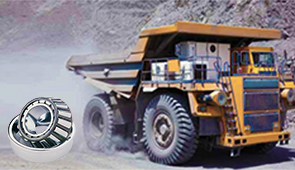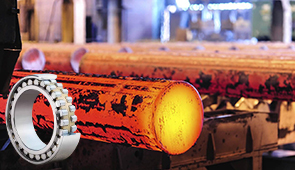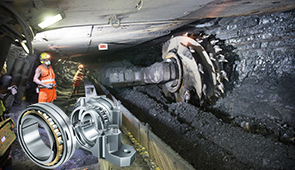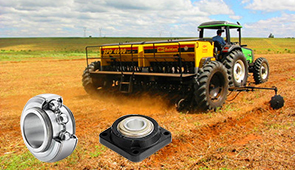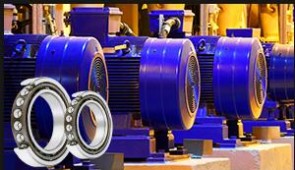Common Bearing Failure Symptoms And What They Mean
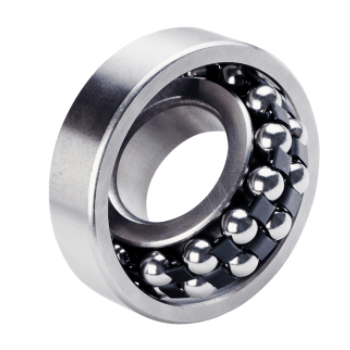
Introduction
Bearings are one of the most important components in industrial machinery. They enable smooth, consistent rotation and help to protect against wear and tear. However, bearings can also be a source of friction and wear themselves. If not properly maintained, they can cause increased vibration, noise, and heat generation. In extreme cases, they can even lead to complete failure of the machinery. In this blog post, we will explore some of the most common bearing failure symptoms and what they mean for your machinery. We will also provide some tips on how to prevent bearing failure in the first place.
Most people don't know much about the inner workings of their car, and that's perfectly fine. However, when something goes wrong it's helpful to have a basic understanding of what might be happening under the hood. This is especially true when it comes to bearing failure.
There are several different types of bearings in your car, and they all serve a vital purpose. Bearings allow components to rotate smoothly and with very little friction. When they fail, things can get hairy fast.
Knowing the common symptoms of bearing failure can help you diagnose the problem early and prevent further damage to your vehicle. Here are some of the most common symptoms:
1. Grinding or growling noise coming from the affected area
2. component feels hot to the touch
3. Excessive vibration coming from the affected area
4. visible damage to the bearing itself
Bearing failure symptoms
There are several bearing failure symptoms that can help you determine if your bearings are failing. These symptoms include:
1. Excessive noise: If your bearings are starting to fail, you may notice a high-pitched grinding or squealing noise coming from the affected area. This noise is caused by the metal-on-metal contact as the bearing starts to wear down.
2. Vibration: Another symptom of bearing failure is increased vibration from the affected area. This can be felt through the steering wheel, seat, or floorboard.
3. Roughness: As bearings start to fail, you may also notice a "rough" feeling when operating the affected component. For example, if your car's wheels have failing bearings, you may feel a roughness in the ride as the wheels start to wobble.
4. Heat: Increased friction from failing bearings can also lead to increased heat in the affected area. This may cause components to warp or melt over time if left unchecked.
5. Wear patterns: In some cases, you may be able to see visible wear patterns on your bearings before any other symptoms appear. This can help you identify problem areas before they cause more extensive damage.
There are many different causes of bearing failure, but some are more common than others. The most common causes of bearing failure include:
-Lack of lubrication: This is by far the most common cause of bearing failure. Without adequate lubrication, bearings will quickly wear out and fail.
-Contamination: Another common cause of bearing failure is contamination. If bearings become contaminated with dirt or other debris, they can quickly fail.
-Excessive load: Another common cause of bearing failure is excessive load. If bearings are subjected to too much force, they can fail.
-Improper installation: Finally, another common cause of bearing failure is improper installation. If bearings are not installed correctly, they can fail prematurely.
There are many different causes of bearing failure, but some of the most common include:
-Lack of lubrication: This is one of the most common causes of bearing failure. If bearings are not properly lubricated, they will eventually start to wear down and fail.
-Contamination: Another common cause of bearing failure is contamination. If bearings become contaminated with dirt, dust, or other debris, they can start to wear down and eventually fail.
-Excessive loads: Bearings are designed to handle certain loads, but if they are excessively loaded, they can start to fail.
-Improper installation: Finally, improper installation can also lead to bearing failure. If bearings are not installed correctly, they can become misaligned and start to fail prematurely.
Prevention of bearing failure
Bearing failures can be prevented through regular maintenance and inspection. common failure symptoms include:
-Excessive noise
-Vibration
-Heat
-Wear
-Leaks
If any of these symptoms are detected, the bearings should be replaced immediately to prevent further damage.
The most common cause of bearing failure is contamination. Contamination can enter the bearing during operation from external sources or be generated from within the bearing itself. The main types of contamination are:
-Particulate contamination: This is the most common type of contamination and is caused by dirt, dust or other particulates getting into the bearing. Particulate contamination can also be generated from within the bearing if it is not properly lubricated.
-Chemical contamination: This type of contamination occurs when chemicals come into contact with the bearing. Chemical contamination can be caused by spills, leaks or other exposure to chemicals.
-Moisture contamination: Moisture can enter the bearing through condensation or wet environments. Moisture contamination can cause rusting and corrosion of the bearings.
To prevent bearing failure due to contamination, it is important to keep bearings clean and free of debris. Bearings should be properly lubricated to prevent particulate contamination. In environments where chemicals are present, bearings should be protected from exposure to these chemicals. In moist environments, bearings should be sealed to prevent moisture from entering.
If you're noticing any of the bearing failure symptoms we've mentioned in this article, it's important to get your bearings checked out by a professional as soon as possible. Ignoring these warning signs could lead to more serious damage down the line, so it's always better to be safe than sorry. Do you have any experience with bearing failure? Let us know in the comments below!
If you suspect that your bearings are beginning to fail, it's important to take action quickly. Bearing failure can lead to serious damage to your engine or other components, and it can be expensive to repair. By familiarizing yourself with the most common symptoms of bearing failure, you can catch the problem early and avoid costly repairs.










